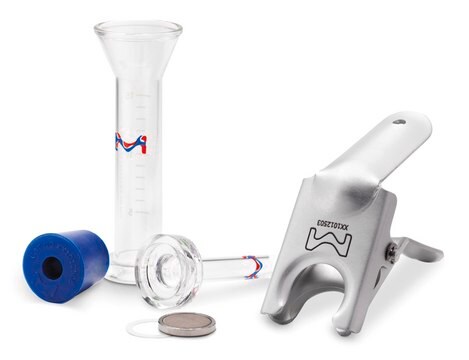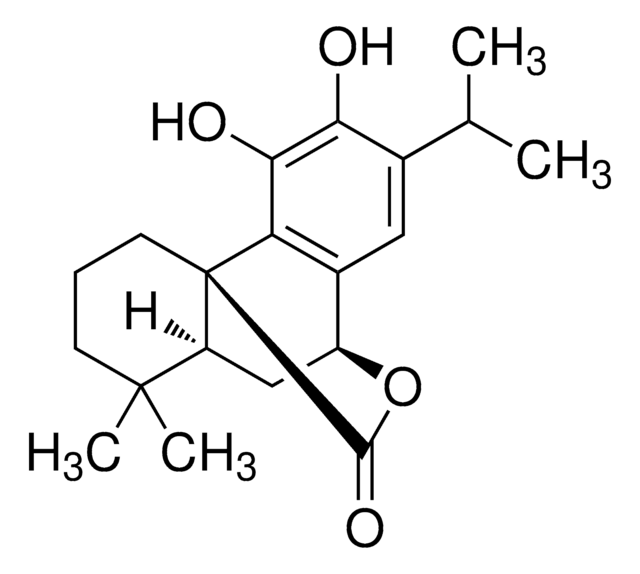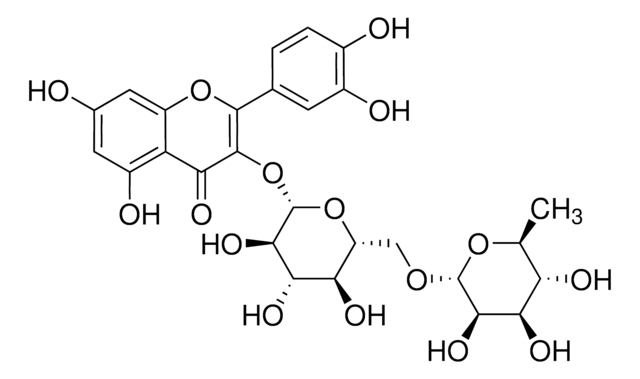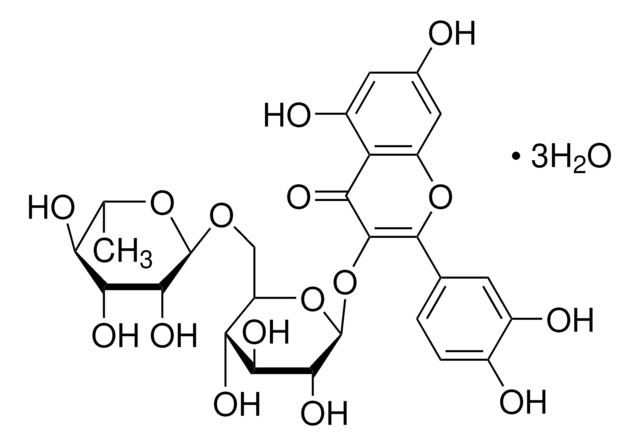00390580
Acide rosmarinique
primary reference standard
Synonyme(s) :
Acide (R)-O-(3,4-Dihydroxycinnamoyl)-3-(3,4- dihydroxyphényl)lactique, Ester (R)-1-carboxy-2-(3,4-dihydroxyphényl)éthylique d’acide 3,4-Dihydroxycinnamique
About This Item
Produits recommandés
Qualité
primary reference standard
Durée de conservation
limited shelf life, expiry date on the label
Fabricant/nom de marque
HWI
Technique(s)
HPLC: suitable
gas chromatography (GC): suitable
Pf
171-175 °C (lit.)
Température de stockage
−20°C
Chaîne SMILES
OC(=O)[C@@H](Cc1ccc(O)c(O)c1)OC(=O)\C=C\c2ccc(O)c(O)c2
InChI
1S/C18H16O8/c19-12-4-1-10(7-14(12)21)3-6-17(23)26-16(18(24)25)9-11-2-5-13(20)15(22)8-11/h1-8,16,19-22H,9H2,(H,24,25)/b6-3+/t16-/m1/s1
Clé InChI
DOUMFZQKYFQNTF-WUTVXBCWSA-N
Vous recherchez des produits similaires ? Visite Guide de comparaison des produits
Description générale
Exact content by quantitative NMR can be found on the certificate.
Application
Actions biochimiques/physiologiques
Autres remarques
Code de la classe de stockage
11 - Combustible Solids
Classe de danger pour l'eau (WGK)
WGK 3
Point d'éclair (°F)
Not applicable
Point d'éclair (°C)
Not applicable
Faites votre choix parmi les versions les plus récentes :
Certificats d'analyse (COA)
Vous ne trouvez pas la bonne version ?
Si vous avez besoin d'une version particulière, vous pouvez rechercher un certificat spécifique par le numéro de lot.
Déjà en possession de ce produit ?
Retrouvez la documentation relative aux produits que vous avez récemment achetés dans la Bibliothèque de documents.
Les clients ont également consulté
Notre équipe de scientifiques dispose d'une expérience dans tous les secteurs de la recherche, notamment en sciences de la vie, science des matériaux, synthèse chimique, chromatographie, analyse et dans de nombreux autres domaines..
Contacter notre Service technique








